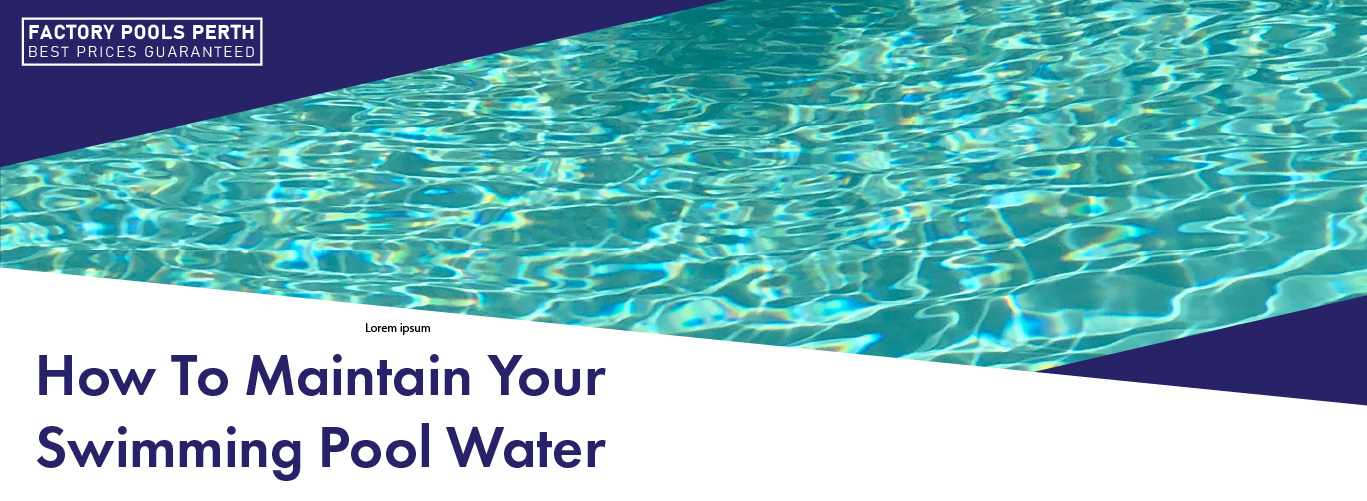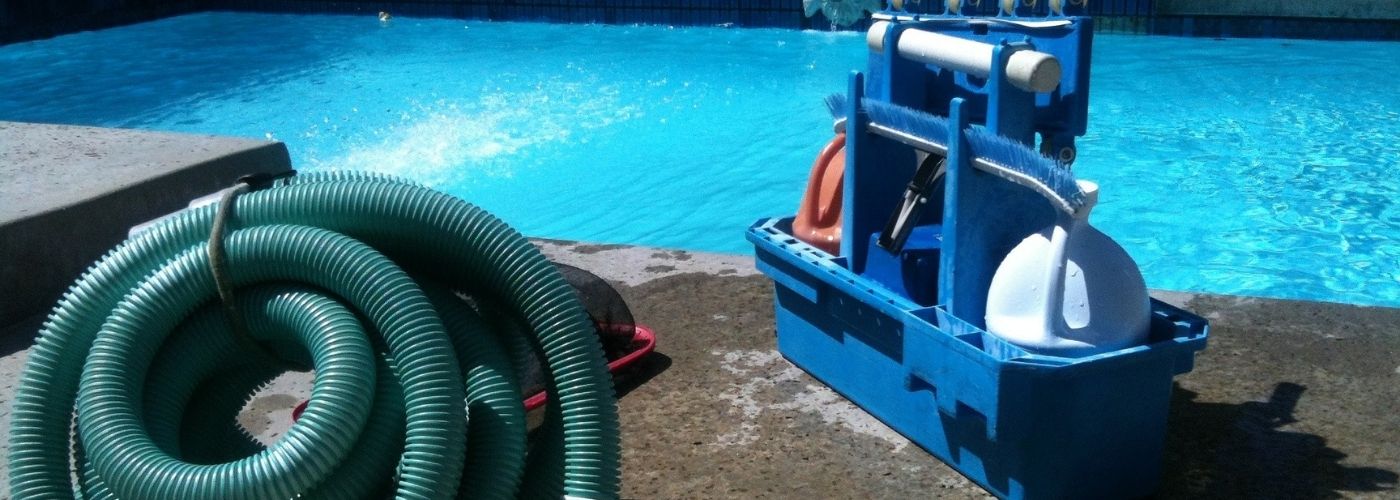How To Maintain Your Swimming Pool Water
Unfortunately, the water in a swimming pool cannot sustain its crystal-clear gleam without regular maintenance. Worry not, it doesn’t have to be a time-consuming and laborious task. A little effort goes a long way, and when armed with the information we’re about to share, you’ll be a pool cleaning pro in no time.

Remove debris from the water
Even if there is no grass or trees near your pool area, leaves, dirt, and bugs will still make their way into your pool water. Your pool’s skimmer does a great job of drawing floating matter into the skimmer however, it won’t get everything especially if the skimmer is too full or there are large chunks of debris in your pool. One thing you should be doing weekly or more if the water is excessively dirty is scooping out the things that shouldn’t be in there. The reason for this is, they will only float on the surface of the water for so long before they start sinking to the bottom of the pool. Once they get to the bottom of the pool, they will start decomposing and creating phosphates. This will affect the pool’s pH levels. Using a telescopic pole with a net attachment, walk around the edge of the pool, running the scoop through the water to pick up any debris. Try to get as much as you can emptying the pool scoop as you go. Each time you remove debris from your pool, you should be cleaning out the skimmer basket as well to stop it from clogging up and preventing your pool equipment from working. Cleaning out your skimmer basket is simple, you just remove the basket, empty the contents, and wash off any remaining bits of organic matter that won’t shift with a hose, then replace.
Check your water chemistry levels
If your pool chemical levels are out of whack, your pool isn’t going to stay clean for very long. Maintaining high water quality is one of the most important things to get right. To test your pool water, you can take a sample to a pool shop for analysis, or an easier way is doing it yourself with a water testing kit. They are super simple to use and inexpensive. By having a testing kit at home, you can monitor your chemical levels closely and this can prevent drastic imbalances that require high doses of chemicals to rectify.
Make sure the chemicals you are using are designed for use in your pool type
It’s a good idea to have all the chemicals you need on hand so that when you need them, they are ready to go, but before stocking up, you must check that the chemicals you are using for your pool are suitable. Using abrasive or harsh chemicals may damage your pool and its equipment.
Don't be afraid to shock your swimming pool
Regardless of whether your pool is traditional chlorine, saltwater, or mineral, they all use chlorine to sanitise the water, some just use less than others. Pool shock is essentially a high dose of chlorine added to the pool to kill bacteria and other contaminants in the water. When the pool is getting used a lot, the number of external contaminants such as body oils, sunscreen and sweat entering the water is increased. Combine this with warm temperatures, and you’ve got the perfect environment for algae to thrive. By shocking the pool you are adding more free chlorine and, this can kill the extra nasties in the water.

Clean your filter
The filters main role is collecting finer particles of debris that pass through the skimmer basket. Without a filter, these smaller particles would remain in the water and it would be difficult to keep the pool clean. The method of cleaning your filter will depend on what type you have. There are three main types of filters, including:
Cartridge filter
Sand filter
Diatomaceous Earth (DE Filters)
To ensure you are getting the best result and protecting your filter from damage, you should follow the cleaning instructions as directed in your user manual. If you don’t have a user manual, it is a good idea to call out a professional pool cleaner, they will be able to tell you what type of filter you have and the cleaning process that’s involved.
Run your pool cleaner
A pool vacuum is a must-have pool accessory, they help to maintain a healthy and clean swimming pool. If you have a manual vacuum, you should set this up and vacuum the pool at a minimum once a week. For those with automatic or robotic cleaners, setting these up to run every day ensures that your swimming pool is always clean. As the pool is kept clean, it can reduce the amount of money you have to spend on pool chemicals. If you have a manual vacuum and you loathe having to manually clean the pool each week, investing in a robotic cleaner may be a good idea. Yes, they are an initial investment but they can save you time and money which makes them worthwhile in the long run. Robotic cleaners have built-in navigation systems which allow them to clean every inch of the pool – walls and steps included. They can be set up to run on a schedule, so you don’t have to manually turn it on or off. Robotic cleaners also use much less electricity than other pool cleaners, rather than relying on the pool’s equipment to run they operate independently with the use of electricity. The amount of electricity they use is minimal and around the same as a standard light globe.
Ensure your water level is sitting where it should be
The water in your pool must be sitting where it needs to be to ensure your pool equipment works sufficiently. If the water is too low, the skimmer can suck in air and damage the equipment, and if the water is too high, it will prevent the skimmer door from closing, and the debris will float back out and into the pool. The water needs to sit halfway between the skimmer mouth. If you have to empty your pool slightly or top it up, be sure to test the water afterwards, you may need to rebalance your chemical levels.

Invest in a pool cover
Pool covers are hugely beneficial as they can reduce the amount of time you have to spend on maintenance drastically. A good quality cover can prevent rain, dirt and leaves from falling into your pool water. They can also reduce chemical, heat, and water loss by up to 97%. By using one often, you can save a considerable amount of time and money on pool care.
We hope this post has given you an idea of how to maintain your pool water. As they say, practice makes perfect, and the more you do it, the easier it will become. If you have any questions about maintaining the water in your fibreglass swimming pool, just ask! Our friendly team here at Factory Pools Perth are a wealth of knowledge and would love to help if they can. Contact us today!

